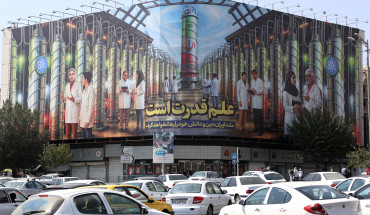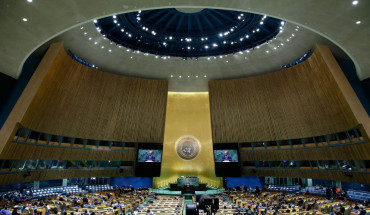
WASHINGTON, DC, August 18 - In June 2020, the Middle East Institute (MEI) launched its newest program, the Strategic Foresight Initiative, designed to explore how the Middle East and North Africa (MENA) region will change over the next 10-20 years.
MEI President Paul Salem said, “The Strategic Foresight Initiative is about taking a long-term view of the Middle East, to help policy makers and other leaders think through what scenarios could emerge in the region and what they need to do to prepare for them - and maybe to help create them.”
The aim is to break free of entrenched ways of thinking and produce what Dr. Salem calls “policy vision” – meaning, the policies, investments, and other actions that leaders might pursue to realize what we and they identify as the “better” futures for the Middle East.
MEI is working with some notable experts from around the world to create the Strategic Foresight Initiative. One of them is Steven Kenney, founder of the advisory firm Foresight Vector and a longtime foresight advisor to governments and corporations worldwide, who is helping design the program. Others involved in the Initiative include Florence Gaub from the European Union Institute for Security Studies; James Kadtke, a longtime faculty member and advisor at the U.S. National Defense University; and Ross Harrison of Georgetown University.
In one of its first major efforts, the Strategic Foresight Initiative recently released Middle East Conflict and COVID-19 – A View from 2025, which examines scenarios built around different combinations of drivers of change related to the COVID-19 pandemic. In this analysis, authors and MEI Scholars Steven Kenney and Professor Ross Harrison examine the health response of governments, the economic response from governments, and the social dynamics of populations to the COVID-19 crisis. Rather than consider them as independent forces of change, their foresight analysis critically focuses on the interaction between these drivers.The analysis then takes the scenarios one step further and looks at how the responses to COVID could affect the conflict patterns in the region, including the civil wars as well as tensions between Iran and Saudi Arabia.
Paul Salem noted that “the analysis in Middle East Conflict and COVID-19 – A View from 2025 is especially important as leaders and policymakers look towards a post-pandemic world.”
You can find on our a website a brief overview of the Middle East Conflict and COVID-19 – A View from 2020 study, quickly outlining the four potential scenarios Kenney and Harrison explored, as well as their three concluding policy considerations. Visit the Strategic Foresight Initiative landing page for more information and to view more analysis from MEI’s new program on the future of the Middle East.
###
Join the conversation with @middleeastinst on Twitter and Instagram
About the Middle East Institute
Founded in 1946, the Middle East Institute is the oldest Washington-based institution dedicated solely to the study of the Middle East. MEI has earned a reputation as an unbiased source of information and analysis on this critical region of the world, a reputation it has meticulously safeguarded since its creation. Today, MEI remains a respected, non-partisan voice in the field of Middle East studies.










